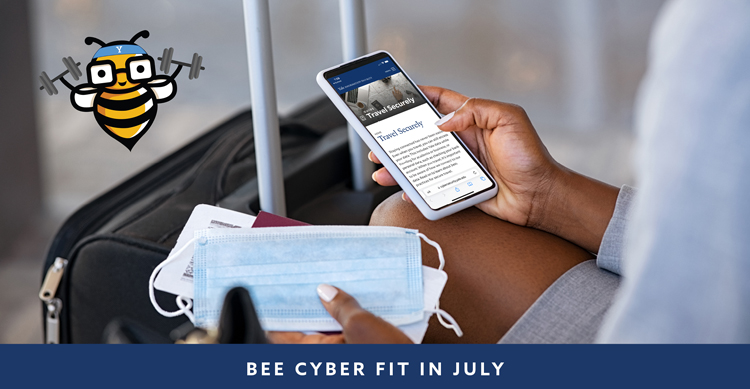While we make our summer plans, bad actors plot their summer scams
It’s estimated that 48 million people will travel this summer. Are you visiting friends or family or prepping for a vacation? Don’t forget to include cyber safety in your plans.
Vacations are great opportunities to relax, reconnect, or explore new locales and experiences. However, scammers still look for ways to try and steal our information. For example:
Enticing us with deals that appear too good to be true
Have you ever received an email offer for a vacation at an unbelievable price if you book immediately? This is an example of scammers playing with our emotions. The desire to get away and the urgency to take advantage of the deal may trick us into giving away our personal data. Remember, if a deal seems too good to be true, it most likely is.
Fooling us by using fake reviews
There are more and more ways to travel nowadays. We are often looking for the best deal or rate for places to stay, ways to travel, and excursions. When doing this, we often rely on online reviews. Did you know scammers can buy fake online reviews? This has become a common practice in tricking users into paying for phony travel accommodations. Scams can be for hotels, Airbnbs, rental cars, and special activities at your location. Look out for nearly identical reviews under different customer personas. You can also seek out reviews from external third parties, such as the Better Business Bureau.
Catching us off guard at the airport
You know the drill. You arrive at the airport and hurry to your gate, only to sit and wait to board. What do you do while you're waiting? A lot of us turn to the free, public Wi-Fi and our devices. Maybe you are logging into Netflix, ordering coffee off an App, or responding to a last-minute email. No matter what you're doing, you are transmitting information over insecure Wi-Fi. The secure way to use Wi-Fi at the airport is to connect to the Yale VPN (virtual private network). We recommend the Yale VPN because it offers the same protections you’d have on the Yale campus. You can use the Yale VPN on your laptop, smartphone, or tablet. This extra step keeps your data private on a public Wi-Fi that scammers know all too well is being used. Also, remember that physical theft is a way to get your information. Keep all devices on you at all times and ensure they are locked with a secure password when not in use.
We want you to enjoy your summer vacation while staying cybersafe. For even more travel-related tips, see our Bee Active: Secure Traveling article in the Bee Cyber Fit newsletter.
